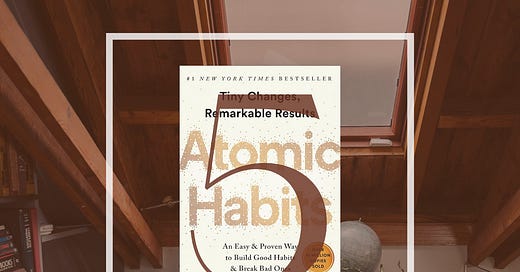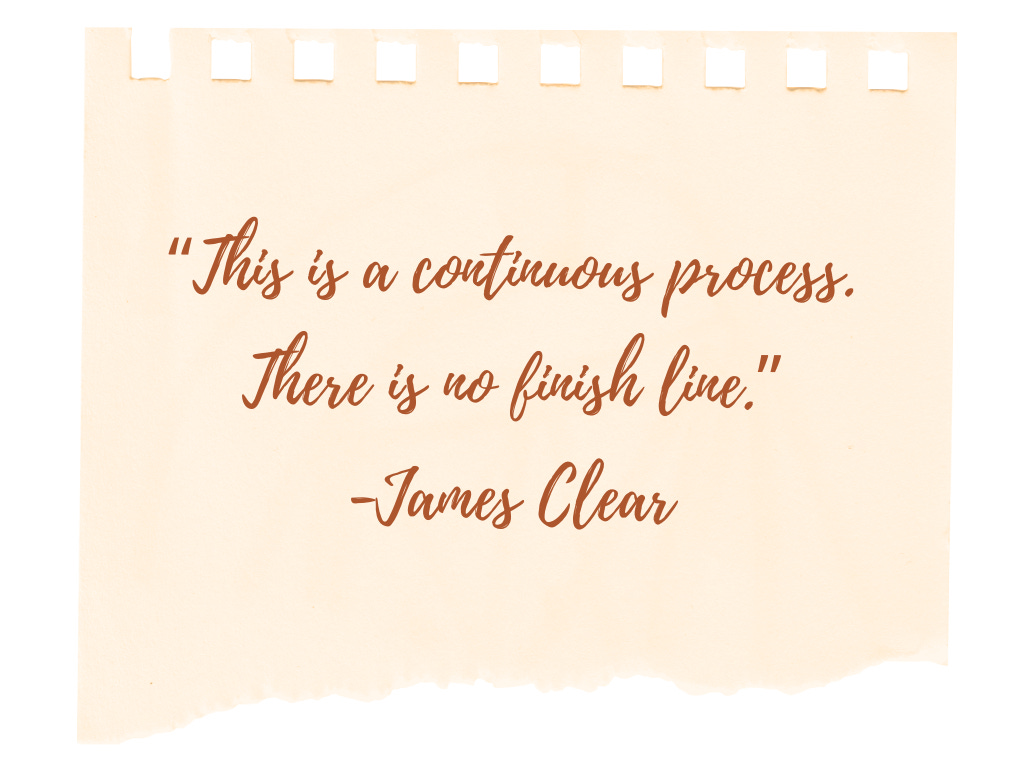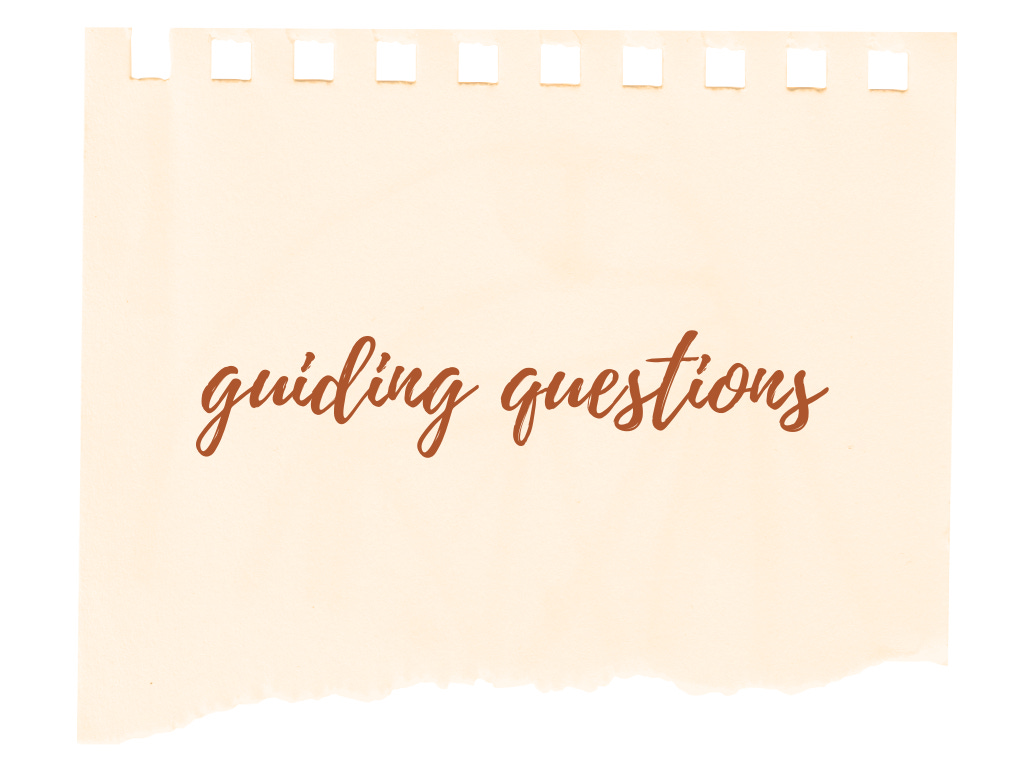Welcome to the final week of our Writers’ Book Club on Atomic Habits! Chronicling my habit changes for this newsletter has been a big undertaking for me and has led to what I hope will be long-lasting practices. But before I get into the results of implementing the ideas in this book, let’s take a look at Chapters 15-17, which focus on providing immediate rewards for new habits in order to train ourselves to anticipate the satisfaction of a longterm change.
I hate clickbait writing advice. Like the Instragrammers who promise to teach you to improve your style and then tell you to that should replace the word “said” with “hissed” when your characters are angry. Accounts like these can have tens of thousands of followers because writers gain immediate satisfaction from making quick changes to their work. Putting in longterm, in-depth work to improve writing style is a longer, more difficult practice. But it’s not just the difficulty that makes writers shy away from doing the real work. It’s the way our brains are primed for quick rewards.
In Chapter 15 of Atomic Habits, James Clear claims that “what is immediately rewarded is repeated.” Longterm projects have no immediate rewards, so it’s difficult to make a habit of working on what’s really important to us as writers. Eventually, gaining a new writing skill or finishing a manuscript is so satisfying that motivation comes more easily for the next project. Our habits start to align with our identity, and we feel a greater sense of purpose in our daily work. But until then, Clear recommends providing immediate rewards throughout a longterm process to keep motivation high.
His recommendation is to use a habit tracker. I’ve seen other writers post online about their habit trackers (usually lines of boxes that they tick off every time they write a certain number of words), but I’ve never tried using one myself. This seemed like a great time to try one.
My habit tracker experiment yielded mixed results. I mentioned in my previous post that I was trying to tackle a difficult section of the manuscript I’m currently working on. I worked out that the section will contain seventeen short chapters, so I drew seventeen boxes on a page in my planner and figured I would check off a box each time I wrote a chapter. I hoped this would motivate me to get started on each chapter quickly, to work diligently, and to finish one to two chapters per day. Honestly, though, I was skeptical of the idea that checking a box would motivate me.
Clear mentions three benefits of habit tracking:
It’s obvious, meaning that it provides a visual cue that reminds you to repeat the habit (see The First Law: Make It Obvious).
It’s attractive, meaning it provides visual proof of your progress, which motivates you to make more progress (see The Second Law: Make It Attractive).
It’s satisfying to mark a success (which is in line with today’s discussion of The Fourth Law).
I’m not sure I agree with Clear’s third point. After checking off the first few boxes on my habit tracker, I didn’t feel satisfied at all. I felt a little silly, actually. The fourth and fifth boxes were a little satisfying to check off, because by then it looked like I had more progress. But I also saw some downsides to using a habit tracker:
It tempted me to prioritize progress over quality.
This isn’t necessarily a bad mindset for a rough draft. Generally, a rough draft just needs words. Once enough words hit the page, it’s easier to see how the story should be written and the writer can move forward toward a better draft.
At the same time, when I’m not feeling excited to write a scene, that means something is off. When I felt reluctant to write my fourth chapter this week, I realized I had put the wrong characters into the scene. I swapped out one of the characters for one more central to the plot, and suddenly I was eager to write the chapter. My habit tracker seemed primed to motivate me to ignore that gut feeling, which would have yielded a lackluster scene that I’d just have to overhaul later, instead of an interesting scene that I could revise into something special.
It narrowed my focus to the current chapter at the expense of the whole draft.
Again, this isn’t always a bad thing. Trying to satisfy the demands of an entire story can make it difficult to start writing a single scene. But after writing six chapters, I’ve realized that a major element of the novel hasn’t shown up in these scenes, which might be a problem. Each individual chapter reads well, but I can’t tell if they’re serving the larger story, and I’ll need anywhere from a day to a week to mull that over.
It proved redundant.
After a week of using a habit tracker, I’ve realized that I don’t need one to motivate me to write diligently. I would have written those chapters regardless of the tracker. And I feel more satisfied by seeing my word count go up than by checking off boxes.
Instead, I think it would make more sense for me to create a habit tracker for one of my newer habits, like avoiding the internet before I finish the day’s writing. That habit has so far been the best for getting me to the keyboard earlier in the morning and keeping my focus on my work. I should lean into that and work harder to reinforce it, perhaps with a habit tracker. In Chapter 16 of Atomic Habits, James Clear points out that habit trackers can motivate us to “overvalue numbers,” and that we should be careful what we measure. I’ve learned that I’d rather measure “days I got to my desk early” or “days I wasn’t distracted by the internet” rather than “chapters written.”
The most effective tool I’ve ever used to ingrain a habit of consistent writing is one James Clear saves for the end of this section: accountability. In Chapter 17, Clear points out that we care what other people think about us, and we can use that to our advantage. My earliest experience with accountability as a writer was in college. My good friend Elizabeth Smith (who I dedicated my first novel to) created a writing group that included the two of us and two of her fellow booksellers at Vroman’s Bookstore. We met weekly, with each person turning in pages one week per month. Over the course of that year, I wrote a short story every month. That schedule provided me with the accountability to reach my goal of writing consistently. In fact, I don’t remember any of our members ever missing their week to turn in pages.
I continued this practice after college, if more haphazardly. Once, I made a pact with my friend Jo Whittemore (who writes hilarious middle grade fiction) to write a certain number of words in a week. We agreed that if we didn’t hit our word count goal, we would write something embarrassing on our foreheads. (I don’t remember what word we agreed on.) We worked very hard and both hit our goals.
Accountability doesn’t have to be quite as drastic as promising to write on your face. A class or a group or a planned check-in with a writer friend can be incredibly motivating, more than you would think. I started this newsletter series as a way to keep myself accountable to experimenting with the ideas on Atomic Habits. I really don’t think I would have gone through with half of the practices I experimented with if I hadn’t kept seeing that little graphic reminding me that I promised to post about my progress every Wednesday.
To end this series, I’d like to share this graphic, which shows which new habits I’m in the process of adopting. I hope you’ll create your own graphic or list as a way to remind yourself of the habits you plan to keep as part of your writing practice. Atomic Habits includes another section we didn’t go through, called “Advanced Tactics.” If you’re finding Clear’s ideas helpful, I’d encourage you to read the rest of the book.
Based Chapters 15-17 of Atomic Habits, here are some questions I’ve been asking myself, which you can also ask yourself:
Which habits would a habit tracker help reinforce? Which habits require efficiency and consistency?
What other ways can I make my new habits satisfying?
Who can keep me accountable to my intention to stick with my new habits?
Announcing: The 100-Word Challenge
The first hundred words of any given writing session are always the hardest for me to write. Some days, it feels impossible to start.
Parker Peevyhouse is the author of Strange Exit and The Echo Room (Tor Teen), which have been called “compulsively readable” and "thrilling" in starred reviews, and Where Futures End (Penguin), which was named a Best Book by the New York Public Library, the Chicago Public Library, and Bank Street.
Find Parker’s writing resources, including her popular digital workbook courses, on her website.












